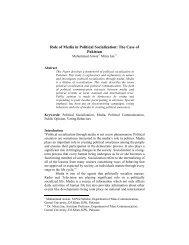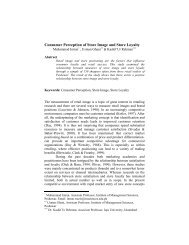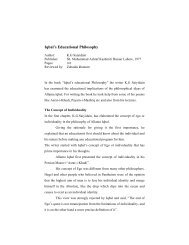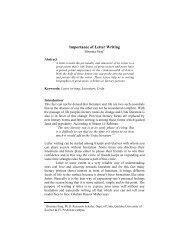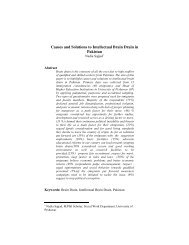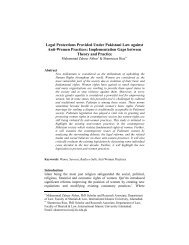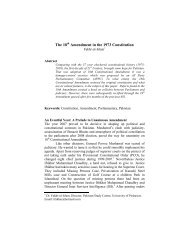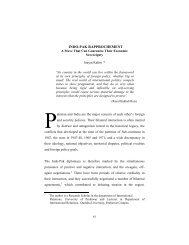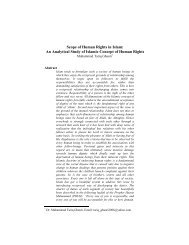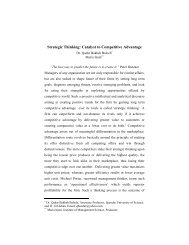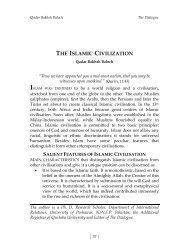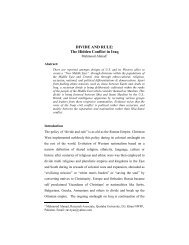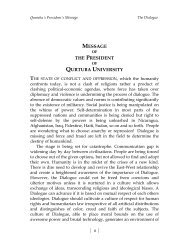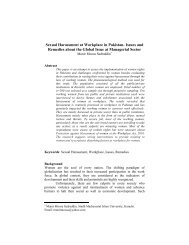COLD WAR POLITICS OF SUPERPOWERS IN SOUTH ASIA Abstract
COLD WAR POLITICS OF SUPERPOWERS IN SOUTH ASIA Abstract
COLD WAR POLITICS OF SUPERPOWERS IN SOUTH ASIA Abstract
Create successful ePaper yourself
Turn your PDF publications into a flip-book with our unique Google optimized e-Paper software.
South Asia occupied an intermediate position in the hierarchy of the Soviet<br />
foreign policy. No South Asian nation possessed the indigenous power to<br />
threaten the Soviet Union and the ability of certain countries to ally<br />
themselves with a major power hostile to Moscow periodically created<br />
apprehension among Soviet leaders. Initially, Soviet leaders concentrated<br />
attention on Europe because they saw Europe as having anti-capitalist<br />
revolutionary potential and later they perceived the United States as the most<br />
serious threats to Russian security. 73 The rising powers of Japan and China<br />
were also great concern to the Soviet policy makers. The Soviet leaders were<br />
aware that they could not achieve their cherished ambition of being recognized<br />
as a global power without a strong position in the region along their southern<br />
border from the eastern Mediterranean through the Indian subcontinent. It was<br />
therefore natural for the Soviet Union to compete with the United States and<br />
preserve the Asian status quo and it was committed to maintain its<br />
predominant interest in Asia, particularly in South Asia.<br />
The Soviet Union was generally perceived as the dominant external power in<br />
South Asia. Its influence and presence in the region had proved to be more<br />
effective and durable than those of its two rivals, the United States and China.<br />
Armed conflict between the forces of national liberation and those of<br />
imperialism had paved the way for Soviet penetration of the South, Southwest<br />
and East Asia. Thus, in fact, the Soviet became involved in South Asian<br />
affairs in the late 1950s as an outcome of its anti-capitalist approach and<br />
reactionary intrigues directed against the suppressed people of the<br />
subcontinent. Initially, Moscow’s most important purpose was to ensure that<br />
the subcontinent would not be utilized by any power against any country. Its<br />
principal means was to be India’s security guarantor and even to stand ready<br />
to be the neutral mediator of intra-regional disputes. However, the situation<br />
changed radically when the United States introduced their doctrine of<br />
89



